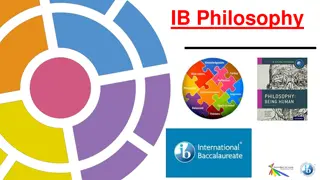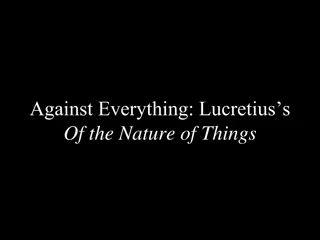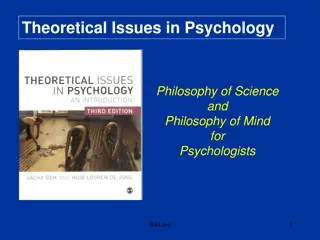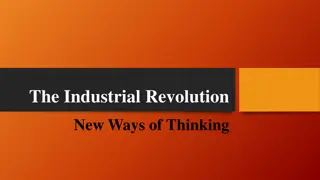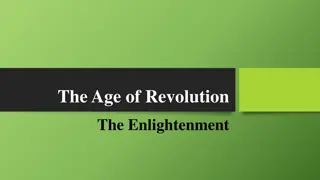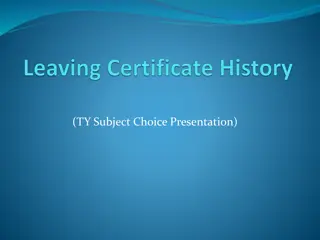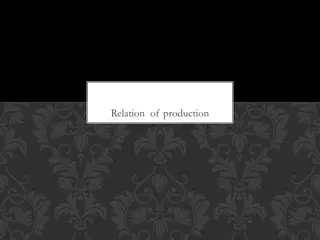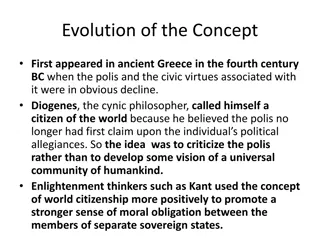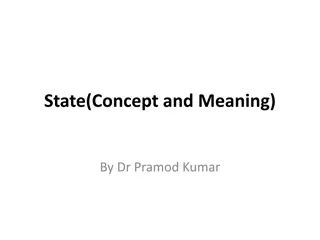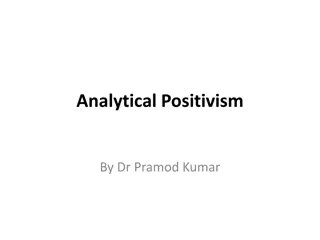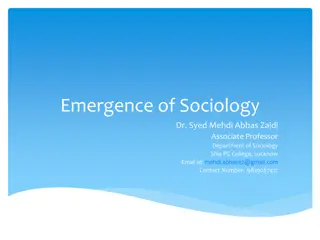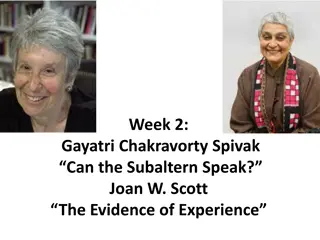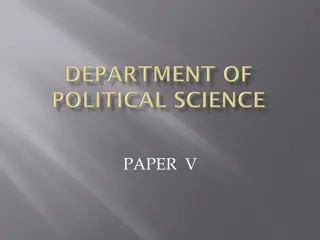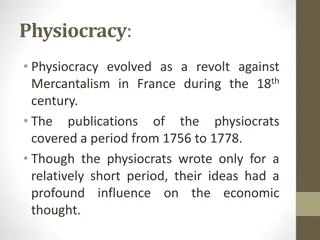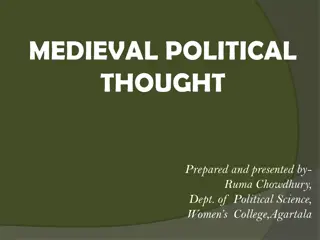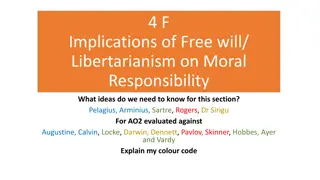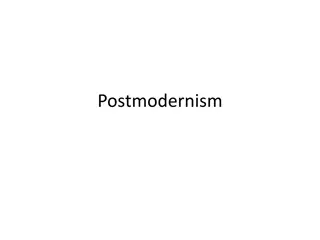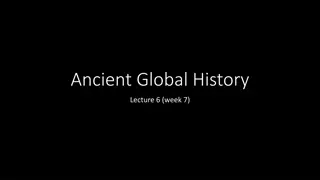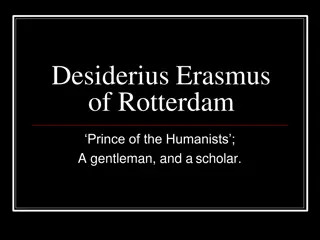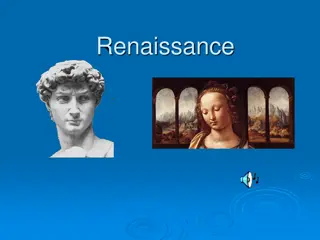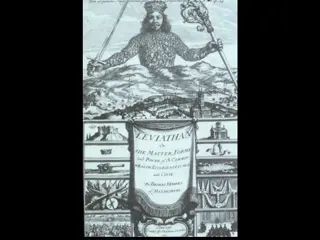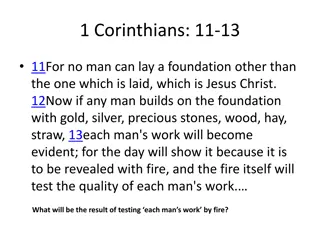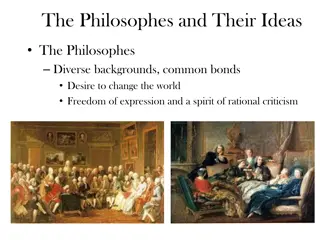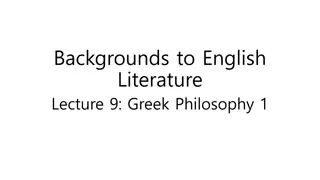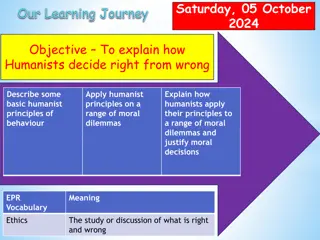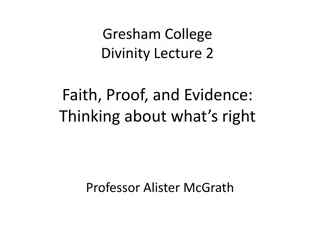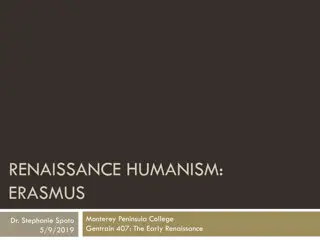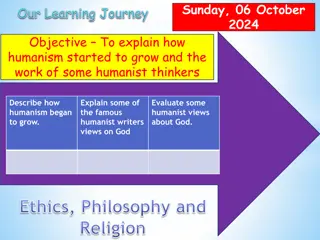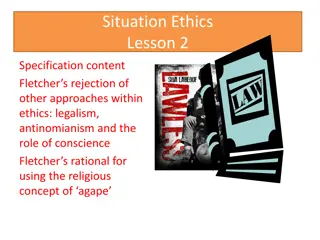Class Group Mastery Adapting to 21st Century Learning
The traditional image of a classroom \u2013 rows of desks facing a teacher dispensing knowledge \u2013 is increasingly incompatible with the realities of modern learning. The 21st century demands critical thinkers, collaborators, and innovators, requiring a fundamental shift in how we approach educa
3 views • 3 slides
Your Guide to Getting a German Study Visa in Hyderabad
Germany, the land of Mar, Nietzsche, and various thinkers and philosophers. The land of eye-catching Volkswagen, ravishing automobiles of Audi, Porsche, Mercedes among multiple others. A land blessed with diverse culture and history. Germany is one of the top sought countries for undergraduate and p
0 views • 3 slides
Principles of Education: Understanding the Meaning and Concepts
Education plays a vital role in shaping individuals and societies, fostering confidence, hope, and positive change. It encompasses a broad spectrum from imparting knowledge to personal growth and lifelong development. The etymological roots of education reflect concepts of discipline and knowledge.
5 views • 6 slides
The Protestant Reformation: Martin Luther and Key Points of Lutheranism
The Protestant Reformation led by Martin Luther in Germany during the 16th century was a religious movement that challenged the authority of the Catholic Church, giving rise to Protestant Churches. Luther's 95 Theses criticized the sale of indulgences and initiated reforms. Key causes included cleri
5 views • 16 slides
Exploring the World of Sociology through Philosophy
This philosophy course delves into engaging with influential thinkers, encouraging students to actively participate in philosophical activities. Covering topics on being human, ethics, religion, philosophical texts, and contemporary issues, it also emphasizes internal assessments and stimulating int
2 views • 15 slides
Unveiling Truth: Insights from Lucretius's "Of the Nature of Things
Delve into the profound philosophical musings of Lucretius, challenging superstition, fear, and fate while advocating for knowledge, pleasure, and free will. Explore the timeless wisdom of ancient Greek thinkers who dared to defy conventional beliefs and seek truth in a universe filled with endless
1 views • 17 slides
Theoretical Issues in Psychology: Philosophy of Science and Mind
Exploring the philosophy of science in psychology, this content delves into key concepts such as positivism, logical positivism, the Vienna Circle, and the scientific process according to positivists. It discusses influential thinkers like Wittgenstein, Popper, Kuhn, and Feyerabend, shedding light o
3 views • 35 slides
The Industrial Revolution and Laissez-Faire Economics: Perspectives on Population and Poverty
Industrial revolution led to new ways of thinking, including population theories by Thomas Malthus and economic concepts like laissez-faire advocated by thinkers such as Adam Smith and David Ricardo. Malthus and Ricardo held bleak views on poverty and population growth, suggesting limited government
1 views • 17 slides
Enlightenment Thinkers and Their Ideals
The Age of Revolution was marked by influential Enlightenment thinkers such as Thomas Hobbes, John Locke, Montesquieu, and Jean-Jacques Rousseau. These philosophers explored human nature, government, and society, shaping modern political thought. Hobbes emphasized a pessimistic view, advocating for
2 views • 9 slides
Understanding Maslow's Hierarchy of Needs in Humanistic Psychology
Humanistic psychologists, such as Abraham Maslow and Carl Rogers, viewed personality as a quest for self-determination and self-realization. Maslow's hierarchy of needs illustrates how individuals progress from fulfilling basic physiological needs to achieving self-actualization and self-transcenden
0 views • 25 slides
Exploring the Benefits of Studying History for Future Success
Understanding the impact of studying history on your future career and personal development. History offers insights into past events, enhances critical thinking skills, and fosters effective communication. Employers value history education for producing independent thinkers and logical communicator
0 views • 19 slides
Understanding Relations of Production in Society
People's need for survival drives them to engage in material production, forming the foundation of human existence. According to thinkers like Karl Marx, the interplay between economic production and social relationships shapes society's structure. The forces of production encompass technological ad
1 views • 7 slides
Evolution of Cosmopolitan Citizenship: From Ancient Greece to Modern Critiques
The concept of cosmopolitan citizenship has evolved from ancient Greece to modern times, with thinkers like Kant and global social movements reshaping its meaning. While some advocate for a universal sense of responsibility, critics question the feasibility and potential dangers of such projects. Mi
2 views • 14 slides
Jeremy Bentham's Impact on Political Thought and Utilitarianism
Jeremy Bentham, a notable figure in Anglo-American philosophy of law, was a key proponent of utilitarianism. He emphasized maximizing happiness for the greatest number of people, critiqued laws, and advocated for legal reforms. Bentham's works reflect the societal changes during his time, addressing
0 views • 13 slides
Understanding the Concept of the State by Dr. Pramod Kumar
The concept of the State is central to traditional political theory, with varying significance in modern political thought. It encompasses the idea of a community with legitimate authority over a territory. Various definitions by scholars like Sidgwick, Garner, and Laski highlight the key elements o
0 views • 17 slides
Overview of Analytical Positivism in Legal Theory
The Analytical Positivism school, also known as the Austinian school, emphasizes a sharp separation between law and morality. It views law as a command and emphasizes the importance of law as it is, rather than how it ought to be. This approach, championed by thinkers like John Austin and Jeremy Ben
0 views • 19 slides
The Emergence of Sociology: A Historical Overview
Sociology, derived from Latin and Greek roots, has evolved over centuries through various stages, influenced by social, economic, and political factors. Key thinkers like Plato, Aristotle, Hobbes, Locke, Rousseau, Montesquieu, Comte, Durkheim, and Marx have shaped the discipline. The Industrial Revo
1 views • 23 slides
Critical Perspectives on Postcolonialism and Structuralism in Spivak's Work
Gayatri Chakravorty Spivak is known for her critical engagement with postcolonial theory and deconstruction, challenging traditional Western perspectives. By drawing on thinkers like Derrida and Foucault, Spivak offers a unique lens to interrogate power dynamics, hegemony, and resistance. Her work r
0 views • 31 slides
Greek Political Thought: An Overview
Ancient Greek political thought differed from other ancient civilizations by focusing on the nature of the state and man as a political being. Greek thinkers examined various forms of government and emphasized the importance of education in shaping citizens. They considered the state essential for a
4 views • 15 slides
The Rise of Physiocracy in 18th Century France
Physiocracy emerged in 18th century France as a response to the shortcomings of Mercantilism, focusing on agricultural prosperity and natural economic principles. Led by prominent thinkers like Francois Quesnay and Turgot, physiocrats challenged the prevailing economic system, influenced Adam Smith,
0 views • 9 slides
Medieval Political Thought: Key Thinkers and Concepts
Explore the medieval political thought highlighting prominent thinkers like St. Augustine, St. Thomas Aquinas, and Marsilius of Padua. The period was characterized by universalism, the absence of organized states, and a blend of politics, economics, and religion. Discover the parallelism between Pla
3 views • 6 slides
Evolution of Liberal Citizenship Theory
The liberal theory of citizenship emphasizes the essential components of right, responsibility, and identity within a political community. It contrasts with pre-capitalist societies by offering a weak sense of membership and reduced citizen obligations. The addition of social rights has brought an e
0 views • 15 slides
Analytic Versus Continental Philosophy in the 20th Century: A Comparative Overview
In 20th-century philosophy, the divide between Analytic and Continental schools deepened but has seen recent attempts at reconciliation. Analytic philosophy emphasizes logic, language, and epistemology, requiring technical expertise, while Continental philosophy rejects metaphysical speculation and
0 views • 15 slides
Philosophical Reflections on Knowledge and Reality
The content delves into philosophical musings from renowned thinkers like Descartes, Leibniz, and Spinoza, exploring concepts such as innate ideas, geometrical truths, and the nature of philosophy itself. Through their writings, we reflect on the origins of knowledge, the interplay of sensory experi
1 views • 22 slides
Moral Responsibility and Free Will Implications in a Contemporary Context
This text delves into the implications of free will and libertarianism on moral responsibility, examining the ideas of various philosophers and thinkers such as Pelagius, Arminius, Sartre, and more. It explores the concepts of moral agency, determinism, normative ethics, religious beliefs, and the c
5 views • 12 slides
Exploring Postmodernism: Art, Literature, and Philosophy
Postmodernism challenges traditional beliefs about language, identity, and reality. It is characterized by skepticism, subjectivism, and a critical view of ideology in politics and economics. Key thinkers like Thomas Pynchon, Donald Barthelme, and Jean-François Lyotard have contributed to shaping t
0 views • 26 slides
The Axial Age: Pivotal Thinkers Across Ancient Civilizations
The Axial Age, coined by Karl Jaspers, refers to a period from the 8th to 3rd century BCE where pivotal thinkers emerged independently in Persia, India, China, Greece, and Rome, shaping the spiritual foundations of humanity. Jaspers, a German philosopher and psychiatrist, highlighted the importance
2 views • 21 slides
E.M. Forster: Humanism, Sexuality, and Colonialism in Literature
Forster, a prominent humanist and author, intricately weaves themes of personal connections, class struggles, and societal restrictions in his works. His exploration of sexuality, particularly the shift from heterosexual to homosexual love, is notable. Through novels like "A Passage to India," he de
0 views • 11 slides
Life and Legacy of Desiderius Erasmus of Rotterdam
Desiderius Erasmus, a Dutch philosopher and scholar, was a pivotal figure in the humanist movement of the Renaissance. Born in Rotterdam in 1460, Erasmus advocated for unrestricted learning, church reform, and intellectual independence. His works, such as "In Praise of Folly," left a lasting impact
0 views • 7 slides
The Renaissance: A Period of Innovation and Transformation
The Renaissance period marked a significant shift in European history, bridging the gap between the Middle Ages and the modern era. It was characterized by a renewed focus on humanism, art, education, and science, leading to groundbreaking developments in various fields. This era saw the rise of pri
0 views • 31 slides
Insights into the Enlightenment Thinkers: Philosophers of Change
The Enlightenment era marked a shift towards reason and enlightenment, with thinkers like Locke, Hobbes, Montesquieu, Rousseau, and Voltaire advocating for progress, natural law, and individual rights. Each philosopher contributed unique ideas to reshape societal structures, challenging traditional
0 views • 18 slides
Criticisms and Challenges to the Pre-Reformation Church
Various forms of anti-clericalism and criticism were directed towards the pre-Reformation church. Hieronymous Bosch's "The Haywain" and Chaucer's Canterbury Tales depict cynicism towards corrupt church officials. The Richard Hunne case highlighted Erastian anti-clericalism, while Simon Fish's "A Sup
0 views • 22 slides
Enlightenment Thinkers and Their Impact on Society
Explore the ideas and influence of key Enlightenment thinkers such as Montesquieu, Condorcet, Voltaire, and John Locke. Discover their groundbreaking works and beliefs on freedom, governance, equality, and religious tolerance, which shaped the American and French revolutions and continue to resonate
0 views • 31 slides
Greek Philosophy: Origins and Influential Thinkers
Greek philosophy originated with the Pre-Socratics in the Ionian School around 600 BC, focusing on naturalistic explanations and cosmological theories. Thales, Anaximander, and Anaximenes were key figures, each proposing unique elemental theories. Pythagoras emphasized the mathematical nature of the
0 views • 19 slides
Humanist Moral Decision Making: Principles and Dilemmas
Humanists determine right from wrong by considering consequences, empathy, happiness, and reason instead of religious rules. Applying principles such as empathy and the golden rule, they navigate moral dilemmas like witnessing a theft and deciding whether to involve authorities based on minimizing h
0 views • 20 slides
Perspectives on Faith and Evidence from Notable Thinkers
Explore diverse perspectives on faith, proof, and evidence from influential thinkers like C.S. Lewis, William James, Simone Weil, G.K. Chesterton, Richard Dawkins, and Charles Darwin. Reflect on how faith intersects with reason, evidence, and belief, shaping different worldviews and philosophical ap
0 views • 14 slides
Erasmus: Prince of Humanism and Renaissance Scholar
Explore the life and contributions of Erasmus, a prominent Christian humanist of the Northern Renaissance. Known for his scholarly works, Erasmus played a vital role in the revival of classical learning and the development of humanistic thought in Europe. His translations and philosophical reflectio
0 views • 12 slides
The Growth of Humanism: From Renaissance to Enlightenment
Humanism began to flourish during the Renaissance and the Enlightenment periods, challenging traditional religious beliefs and emphasizing the value of human reason, rights, and autonomy. Influential humanist thinkers questioned the authority of the Church, valued human creativity, and promoted indi
0 views • 26 slides
Rabindranath Tagore: The Iconic Man of Letters and His Political Stand
Rabindranath Tagore, the Nobel Prize-winning poet, novelist, and painter, was a modernist humanist who criticized extremist nationalism. He founded Viswa Bharati University as a radical educational experiment. The context of his time, including the Jallianwala Bagh Massacre and the Swadeshi Movement
0 views • 15 slides
Joseph Fletcher: A Transformation from Priest to Professor
Explore the life of Joseph Fletcher, an American Anglican priest turned professor, known for his book "Situation Ethics." His journey from priest to humanist, teaching Christian ethics, and advocating for controversial topics like euthanasia and abortion is highlighted.
0 views • 21 slides




